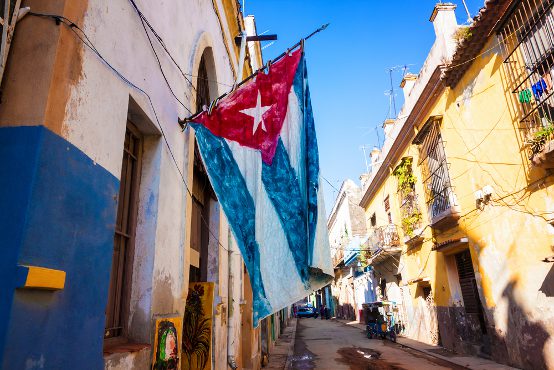Meet Cuba’s New Guard, Same as the Old

In the morning moments of central Havana, silence is punctuated by the tinny honks of 60-year-old cars, muffled televisions, ringing landlines, and the quaint sound of dial-up Internet connecting over phone lines in the tenements of government employees who have allotted access. In a country where policy still stands in the way of progress, change is welcome but not forthcoming. When Cubans awoke the day after their National Assembly voted Miguel Díaz-Canel into the presidency 603 to 1, the only real change was the name of the man in power. And his was the only one on the ballot.
During the National Assembly that marked the transition of power, Díaz-Canel announced that Raúl Castro will continue to be involved in the nation’s decision-making process. Castro himself also asserted that he will continue to guide Díaz-Canel. Castro will remain head of the armed forces and the Communist Party for the next three years, and still controls the muscle and the movement that steer the nation’s policy and prevent dissent. During the assembly, both Díaz-Canel and Castro sported red ties emblematic of the country’s socialist revolution. It was a signal that consistency and conformity are still the dominant mantras.
Díaz-Canel himself served as vice president of Cuba’s Council of State in 2013 and since that time has reportedly worked closely with Raul Castro. He is a dedicated Communist, serving as secretary of the Young Communist League and later as a member of Communist Party’s executive committee. At 57 years of age, he is the newest manifestation of Cuba’s old guard, tasked with carrying the baton of ideological consistency forward.
It is tempting to think that milestone events such as the handover of power to Díaz-Canel will push Cuba towards policy reforms and liberalization. Similar forecasts were made following the transfer of power from Fidel to Raul Castro in 2008, the renewal of diplomatic relations between the U.S. and Cuba in 2014, and Fidel’s death in 2016. However, entrepreneurship within Cuba and trade between the United States and its island neighbor remain stunted.
The Cuban government has long blamed the sufferings of the Cuban people on the 60-year-old U.S. embargo. And while the embargo has hampered trade, it is ultimately the internal command-and-control-style policies that have held the country back from prosperity. American trade and travel restrictions are largely a scapegoat.
In Cuba, both domestic and foreign businesses need to ask permission to perform daily functions such as hiring and firing employees, advertising, importing goods, and selling products. They also need to navigate dual currencies. Banks remain untrusted entities, which has led to a credit market that’s practically nonexistent. Limits on foreigners acquiring and owning property as well as uncertainty about future crackdowns and potential nationalization of profitable industries make Cuba a harrowing climate for a prospective entrepreneur. A 2012 crackdown on foreign investments ended several joint ventures in Cuba. Most U.S. businesses are not willing to operate under these conditions.
Local Cuban entrepreneurs face a similar wad of red tape. In 2011, Raul Castro authorized 201 licensed types of non-state employment, though most of those occupations—including bicycle taxi driver, book binder, and floor polisher—are low-skill or narrowly defined. To put this limited allowance in perspective, the North American Industry Classification System lists 1,170 different industries in the U.S. and the Bureau of Labor Statistics records at least 867 distinct occupations. Even then, there are many types of employment that do not fit these designations, including rodeo clowns, futurists, and life coaches. Classifications are constantly emerging and evolving. However, Cuba has not since updated their list of permitted non-state occupations. Instead, in 2017, the Cuban government suspended license issuing for restaurants and “casa particulares”—local bed and breakfasts—citing tax evasion schemes.
While Díaz-Canel promised gradual reforms including more widespread Internet access, it is too early to tell whether his words constitute mere tropical hot air. He would do well to loosen restrictions on local entrepreneurs or cuentapropistas. The U.S. can do its part by increasing trade, permitting travel to the island, and continuing to celebrate and reward examples of entrepreneurship unrestrained by political heavy-handedness.
Bystanders should hesitate before heralding the twilight of the Castro regime. It is not the end of an era so long as socialism remains the dominant policy on the island. In order to thrive, Cubans need changes that are more than cosmetic. Otherwise the transition of power to Díaz-Canel will represent merely the unremarkable arrival of the new old guard.
Anne Hobson is a program manager at the Mercatus Center at George Mason University.
Comments